by Jenny Tsiropoulou and Thanos Kamilalis
Translated by Margarita Pipinos, University of Michigan
The Mirabal sisters were leading figures in the ‘June 14th Movement.’ This movement fought to both overthrow dictator Trujillo and for the rights of women. Trujillo, a tyrant in Santo Domingo since 1930, violently pursued the ‘Butterflies’ and their families. He murdered the ‘Butterflies’ during their visit to the prison where their husbands were kept. The murder of three of the four Mirabal sisters caused national uproar that turned people against Trujillo. A few months later, Trujillo was assassinated by high ranking military officials of Santo Domingo. The Butterflies’ struggles are commemorated worldwide on November 25th. They are symbols of the war for women’s rights and women’s freedom.
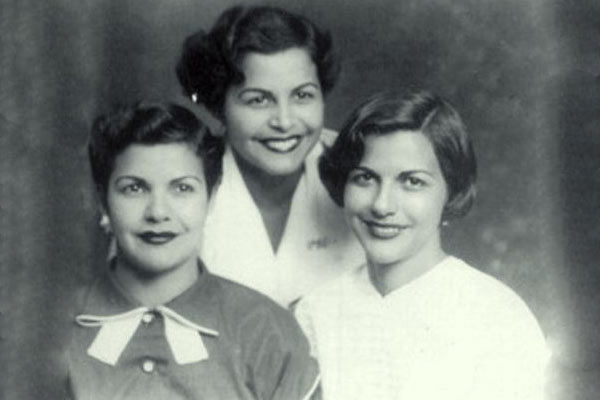
A Global Scourge Equivalent to Cancer and Car Accidents
In accordance with the 1993 UN Declaration on the Elimination of Violence against Women, “violence against women” means any act of gender-based violence ending or likely to result in physical, sexual or psychological harm, or pain to women. This includes threats, as well as the deprivation of a woman’s freedom, whether it is arbitrary or by coercion and whether this occurs in public or private life.
Organizations such as the United Nations present it as a global scourge, equivalent to cancer and car accidents. Although violence against women is often linked to countries outside the Western world, data on European countries and on countries such as the USA show the magnitude of the problem. Specifically, according to relevant studies:
⦁ The most common form of violence comes from a sexual partner. One in three women at some point in their life will be abused by their partner.
⦁ Half of female homicide victims have been murdered by a (current or former) spouse or partner. For men, this figure is 8%.
⦁ One in five women at some point in their lives will be the victim of rape or attempted rape.
⦁ Women aged 15-44 are more at risk for rape or domestic violence than cancer, road accidents, war, or malaria.
⦁ Approximately 120 million women, just over 10% of the world’s female population, have been raped or sexually harassed.
⦁ In Europe, 33% of women have been victims of violence at some point in their lives after the age of 15. One in ten has also received some form of harassment over the internet, with women between 18 and 29 years old being most at risk. According to data from the Hellenic Society of Forensic Medicine (HSFM) published in 2016, in a single year, 16,700,000 women in the European Union suffer physical or sexual abuse.
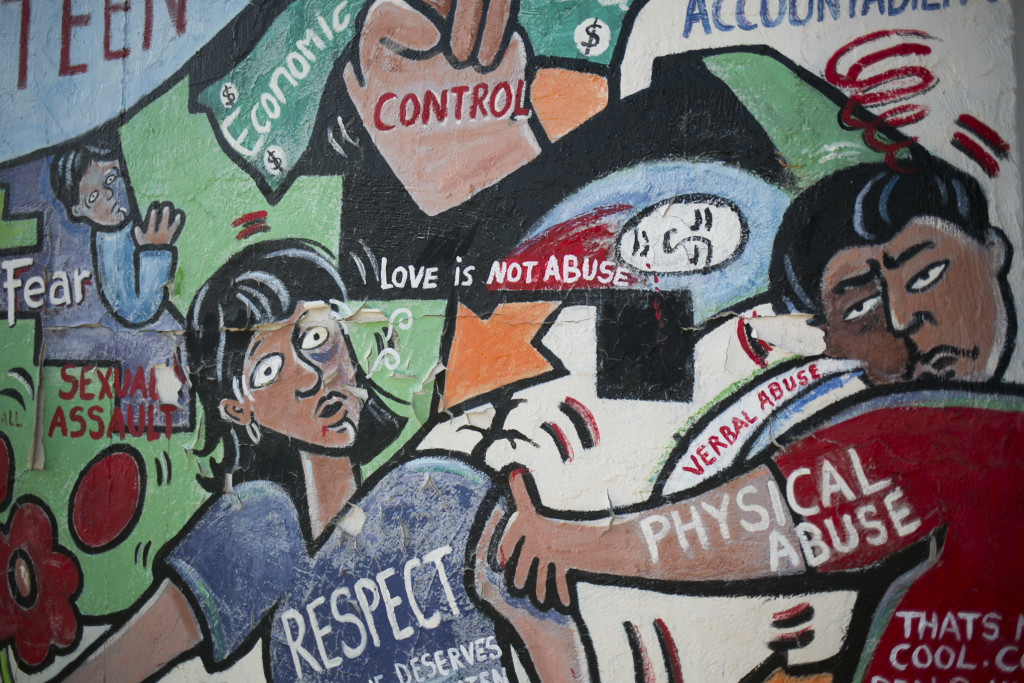
5,000 Rapes Per Year in Greece, and 150 Make it To Court
With regards to Greece, the pan-European survey conducted in 2014 showed that 25% of women have been the victims of physical, sexual or psychological violence since the age of 15, while the NHRF report raises the figure to 28%. Since 2011, the General Secretariat for Gender Equality (GSGE) has been operating the 24-hour Help Line “SOS 15900,” where victims, as well as third parties can turn to report incidents of violence. The SOS Line received a total of 4,266 reports of gendered violence last year, of which 3,034 calls came from the abused women themselves, while 1,232 calls came from worried third parties who had seen the signs of violence on a woman’s body. As noted by GSGE, 80% of the callers reported cases of domestic violence by the spouse.
The SOS Line, one of the dozens of structures operating in Greece and helping victims of gendered violence, primarily provides psychological support, while also giving the victim the opportunity and the necessary information to explore her choices. “We are trying to empower the woman,” says Evi Lezgi, a psychologist with the SOS Line. “If we need to, we refer her to someone anonymous who works in our network, or to our legal team.”
However, GSGE’s data represents only a small part of the problem, because, according to UN figures, less than 40% of the victims worldwide seek some form of assistance, while less than 10% report violence to the police. For example, according to medical examiners, rape incidents in Greece are estimated to be about 5,000 per year, but only 150 of them reach the courts. As the HSFM notes, this is a result of the lack of medical forensic structures since, “at least half of the counties in Greece do not have medical examiners or criminalists.” The factors that prevent women from seeking help are mental: fear and shame.
Violence Without Social Order
“The women who call us are afraid. They are overcome by reluctance, not knowing if they should file an official complaint. Victims know that when a report is made to the police, some kind of action will be taken: the perpetrator will go through an initial hearing and a court date will be set. In the meantime, the perpetrator is allowed to return home, raising concern about what may happen to the woman. We do not know what percentage of women proceed to file a police report,” notes Evi Lezgi.
Contrary to what many people believe, violence against women cuts across socioeconomic and educational divides. People often think that violence is connected to low educational level or low social status. This is not the case. It is a misunderstanding,” the psychologist tells me.
“When we Tell Them They Are Victims of Violence, They Are Shocked”
“Psychological violence is much more serious. Sometimes it can be much more difficult to overcome than physical. In physical violence, there is usually a wound that will heal at some point. Psychological violence affects the victim much more profoundly. It reduces self-esteem, causes devaluation of the personality of the victim, and creates a relationship of dependence,” says Evi Lezgi.
In fact, it is a form of violence that gradually becomes a way of life, as the victims end up getting used to it and even expecting it. “Many women call us to ask what violence is, and they are shocked when we tell them that they are the victims of chronic and repeated violence. They consider it normal, as it is something that has been happening to them for many years: they end up believing that this is the way relationships are supposed to be.”
Psychological violence is often the first stage of physical abuse. It is the sign that physical assault or sexual harassment will soon follow. “No one raises their hand suddenly, out of nowhere, to hit someone. Where there is physical violence, we believe that psychological violence also existed. It is not always certain that psychological violence will develop into physical violence. But it is very likely,” says Mrs. Lezgi.
A little later, one of Lezgi’s colleagues, who works about 300 kilometers away from Athens in Agrinio, opened our eyes to the violence in Greece’s rural areas.
.
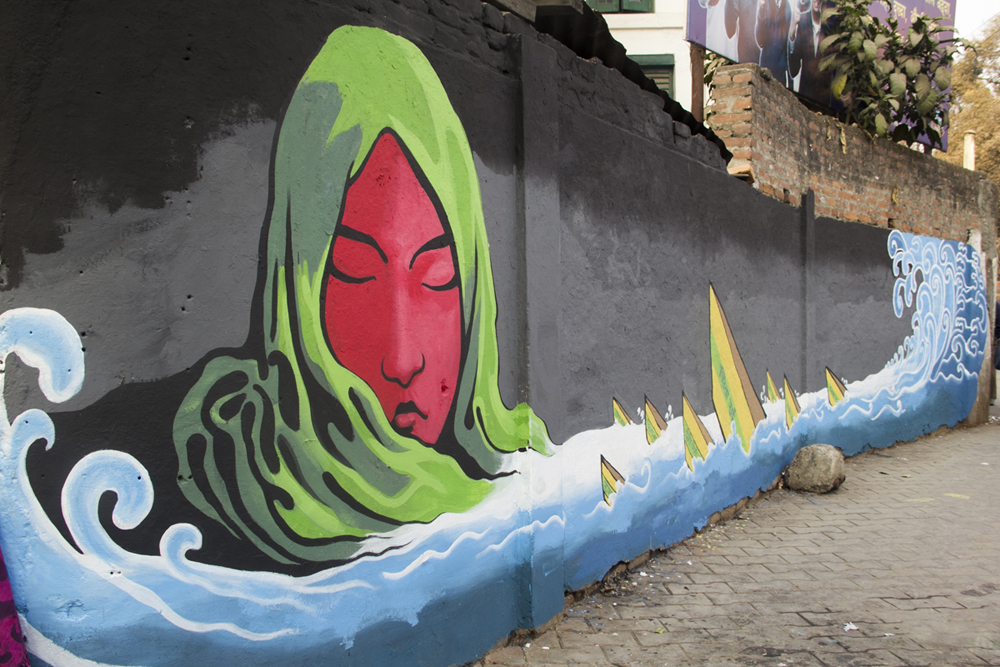
Battered Women Would Come to Our Doors at The Crack of Dawn and We’d Let Them Sleep in Our Offices
The sobs of female victims of gender-based, domestic violence are muffled by pillows, lurk behind locked doors and closed shutters, and are succeeded by that ominous hand of an individual close to the victim who shushes and silences the victim. If this silencing phenomenon occurs extensively in the capital city of Athens, it makes us wonder how much more frequently it happens in rural Greece, where closed doors and secrets are common?
“The abuse reports of women are usually lost somewhere in the fine print of the middle pages of the local newspapers. High unemployment rates in the region have increased violence against women, among other things. Certainly, machismo has always been pervasive, so the crisis has not changed much.” These are the words Natasha Makridima uses to introduce me to the situation present in the rural regions of the country.
She is from Agrinio and has been working as a mental health counselor since 2014 at the Shelter for Battered Women, which helps women who suffer from discrimination: women who are homeless, immigrants, roma, disabled, etc.
The Shelter for Battered Women opened three years ago and is the first such shelter in Aetolia-Acarnania, geographically the largest province of Greece, with 211,000 inhabitants.
Natasha Makridima remembers how, before guest rooms became available at the shelter, battered wives with their children would leave police stations and at the break of dawn would come knocking on her office door. She had no place to put them and had to squeeze them into her office in the counseling center that then existed in Agrinio. The next day she had to look for appropriate lodging for them in Athens, and once found, the woman and her child had to travel to that shelter in the capital city at her own expense. “People working in the counseling center would give donations to purchase the tickets,” she says. “This was happening 15 years ago. You cannot imagine what we have seen. There was a great deal of fear—fear and terror. If women went to the police and then went home, they feared their husband would kill them.”
Despite the critical importance and utility of the shelter, its opening was delayed for several decades. “Why? Because we depended on money from the unreliable programs of ESPA (Corporate Pact for Development Framework), and when the programs are put on hold everything stops. Projects like ours do not attract voters, since they don’t produce good spectacles or photo ops. I’m sorry to be talking bitterly. It’s only because I’ve experienced this all firsthand,” says the mental health counselor.
I Am 62 Years Old, And Ever Since I Can Remember, I’ve Been Beaten.
“From March this year up until today (nearly nine months), the shelter has accepted 83 requests, and we have hosted 23 women and 21 children. The women who come to us are 28-40 years old and 99% of them are unemployed. Most have never worked in their lives and were married at a very young age. Security is the main thing they request from us. They want to feel safe first, and then we worry about food and housing. After all this, comes the need for legal information and help finding a job,” says Mrs. Macridima.
A little before our phone conversation, Mrs. Macridima had accepted another call that shocked her, despite her extensive experience in this field: “I just talked to a woman today who asked to come to the shelter. She will visit us next week: a 62-year-old woman whose words shocked me: ‘I am 62 years old and ever since I can remember, I’ve been beaten, first by my father, next by my husband, and now by my children.’”
The shelter is a two-story building. On the first floor there is a playground and a lounge where women gather to have their tea or coffee and watch TV. All new members are welcomed here. Upstairs there are ten double rooms with two beds for the women and children, and the kitchen where women cook. “We are like a hotel for families,” says the mental health counselor. “Trust is the most important thing for us. The women bring their bad experiences and stories with them; at first, they are very cautious. After some time, they open up and reach out to the other members and soon enough we see them living like a family in the shelter and supporting each-other in real life outside the shelter. We have seen women who have left the shelter and ended up living together with female-friends they made during their stay in our shelter.”
Currently three women and two boys live in the shelter. “Our youngest goes to elementary school and the oldest goes to high school. Right now, we are waiting for our first refugee from Ethiopia to arrive,” says Mrs. Macridima.
When I asked if the shelter is somewhere far and secret, in order to protect women who are trying to hide from their perpetrators, the mental health consultant’s answer surprised me: “No, the truth is that we are in the heart of the city, near the main town square of Agrinio. This is, at the same time, fortunate and unfortunate. A positive aspect of our location is it is very convenient for reaching any necessary services. A woman is not at risk, for example, if she needs to go to the hospital, the Government Agency for Employment (OAED), or the public prosecutor’s office. The public transportation here is not great, and the women do not have the money to get around; so in this sense, it is a good thing that we are at the center of the city. However, the bad thing is that we cannot easily keep the location of the shelter secret, as it should be for security reasons. Fortunately, so far we have never had problems.”
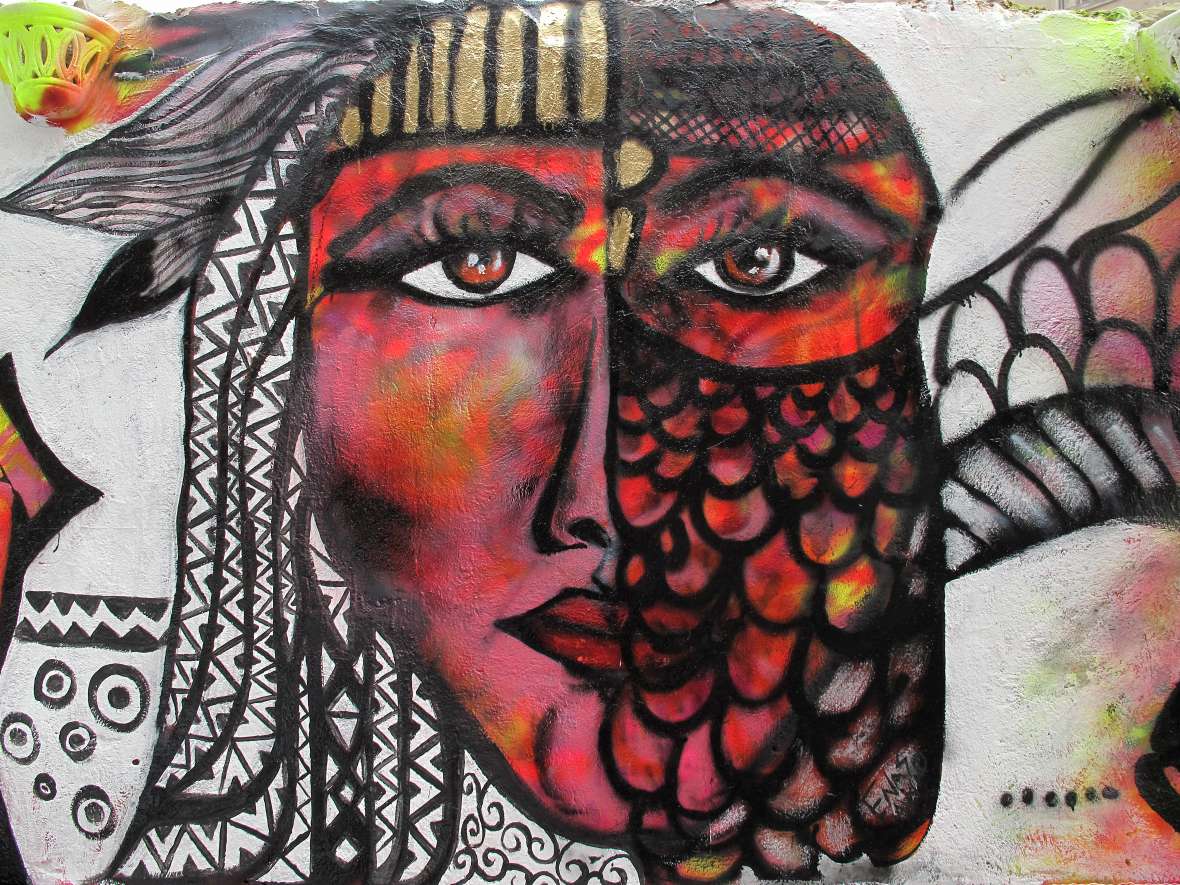
“If He Drinks a Little too Much, Leave Him and Go to Your Room to Sleep. There is a Lot of ‘Hump Then Spank’ Here.”
“Is the violence mostly verbal or also physical?,” I ask Mrs Macridima. “It is often physical, as the “machismo attitude” is quite pervasive amongst men in our county. However, the violence that leaves no visible effects is the most insidious because it is not visible to other people and because the victims will never disclose it to anyone. “The body can withstand it, sure, though many women have said to me: ‘The beatings were something I could endure. What I can’t stand is him battering my soul every day.’ The combination of both physical and verbal abuse is deadly. The violence comes primarily from the husbands, and here in rural Greece we see the following phenomenon: many foreign women come to the country, marry natives, and then experience violence from Greeks. Here we have the syndrome—I will say it colloquially—of ‘hump then spank.’ Yes, and these men also beat their children. Children are often scarred because they witness these traumatic events. Many times, they do not feel the pain of the blow as much as the guilt and persistent question, ‘Why am I experiencing this sort of behavior?’ This is not only how women describe it, but it’s also how I have experienced it personally, as a person who grew up in this region. We’re talking about the man ‘hunter,’ who is not home all day, the tough guy who doesn’t accept criticism and is quick to anger, and who won’t let the woman have much of a say. It will take a lot for this situation to change—though I see that the new generation is different. Personally, I have faith in the new generation and in their more open-minded, modern education: education, which is not limited to essay writing, but offers lessons to carry us through life.”
As I listen to Mrs. Makridima speak to me, I feel like I’m witnessing a frightening scenario straight out of a Greek film. All the ‘bad guys’ and stereotypes are there.
“In the past, women did not have anyone to confide in. They would talk to their neighbor, who often did not have their best interests in mind, and even if she did, how could she help the situation? Some women tried talking to the police – which introduced other kinds of problems. I have heard of very bad experiences with the police from the women. They would go to the police, and the officers would say to them, ‘Just let boys be boys, it is not such a big deal if you get a light beating, just do not talk back. And if he drinks one too many, just leave him alone and go to sleep. He is a man, so it is understandable if he speaks with harsh, tough words.’ Among the police officers, you would always find this kind of man, this embodiment of machismo culture. We have had many women in our region commit suiccide, women who could not take it any longer. In rural town especially, women ingesting pesticides to end their lives became something common. But you would never hear that she did it because of abuse. People would always say, ‘She had psychological problems.’ Suddenly, we were all ‘psycho.’”
“Today, fortunately, police officers have improved. I have noticed that there are even people who have studied sociology in the police force. These men handle abusive situations in a more appropriate manner. Even so, this appropriate behavior is not exhibited by all police officers. However, it is so important, that women now are beginning to talk and speak up about what’s happening to them.”
”
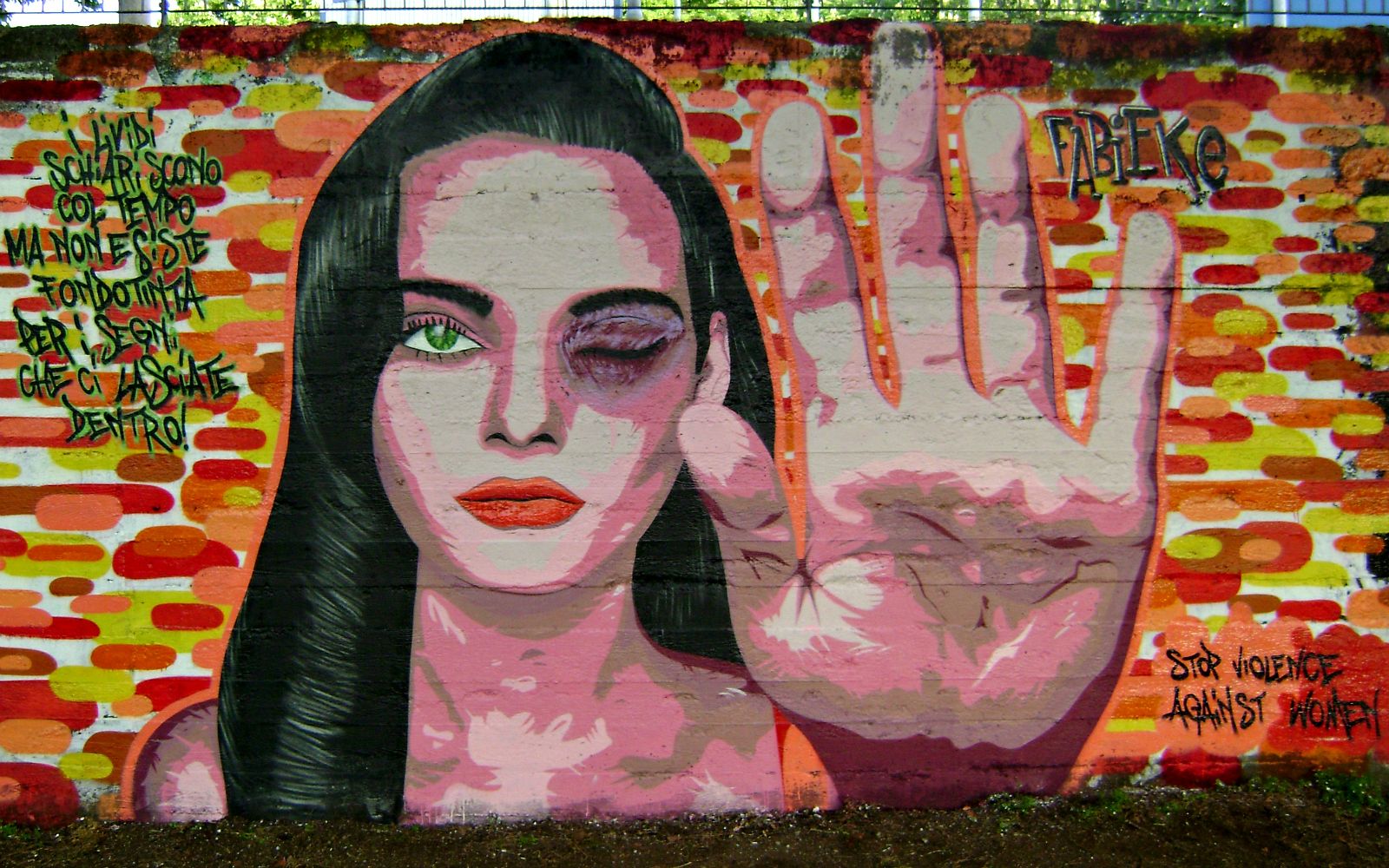
Life After the Shelter
The rules of the shelter limit the number of days a woman can stay to 3 months, nonetheless most women stay longer. “Usually they will stay 6-7 months. Children get placed into schools near the shelter, so we can’t ask the woman to leave after 3 months, it’s not good for them or for their kids to continually change environments. The children are under the care of a pediatric psychologist here,” says the mental health counselor.
“How do they continue their lives after their time in the shelter?,” I ask Mrs. Macridima. “What choices do the women make for themselves and their children based on their experiences in such a supportive environment?”
“After the shelter, 90% of our own women find a job and work. We try to build connections with OEAD or local organizations and with our personal acquaintances; we give them unemployment status and inform them of their rights, as most women do not know anything about them and do not know how to survive in society on their own. They have learned to be locked away at home, doing nothing, and they often have depressive disorders. We fight to help them overcome all of these things. They are also provided with legal counseling on divorce proceedings, as well as information on available government benefits if they are single parents. We have had cases where women were entitled to benefits, but never received them because their husbands had wrongly and illegally stolen the benefits for their own personal use,” she explains.
“Can women find emotional peace and enter new relationships? Can they start a new family?” “We have had some women ask for a divorce from their perpetrator, while we have had two women who returned to their husbands because they believed things would change. In fact, one of the two was once again beaten and she returned to the shelter for a second time. Another became pregnant, mistakenly thinking that this would make her partner less violent and that their life together would change. Unfortunately, this idea was a trap. Most abused women do not start a new family, and because they already have children, their world revolves around themselves and their children. We always tell them to take things one day at a time. Some have found work and stood tall. They were able to discover their self-dignity and confidence. They even found a new partner.”
The influence of the culturally constructed idea of a ‘sacred’ Greek family, is seen in how some Greek parents persuade their daughters to shut their mouths and stay with their abusive husbands, in order to avoid gossip and social stigma. “Ultimately, this is what ends up happening: If the daughter leaves her home and comes to us, then it’s certain that the furious husband will call the mother-in-law; and usually, at that point, the mother-in-law sees the abuse, and she will support her daughter’s stay at the shelter,” says Ms. Markridima about her daily experiences.
A big step towards breaking the cycle of violence, fear, and shared guilt was the Law 3500/2006 “On Family Violence,” “as the law dictates that the perpetrator will go through an initial, expedited court evaluation that does not end with a simple citation.”
Towards the end of our conversation, the mental health counselor reminded me of the power of television, which is always lit up in the houses in the provinces: “In this area, information comes almost exclusively from television. When the reporter presents a perpetrator as a hero, then people will never support the woman who is beaten. But, when the media educates people and denounces the violence, you can be certain that people here will show more support to abused women.”